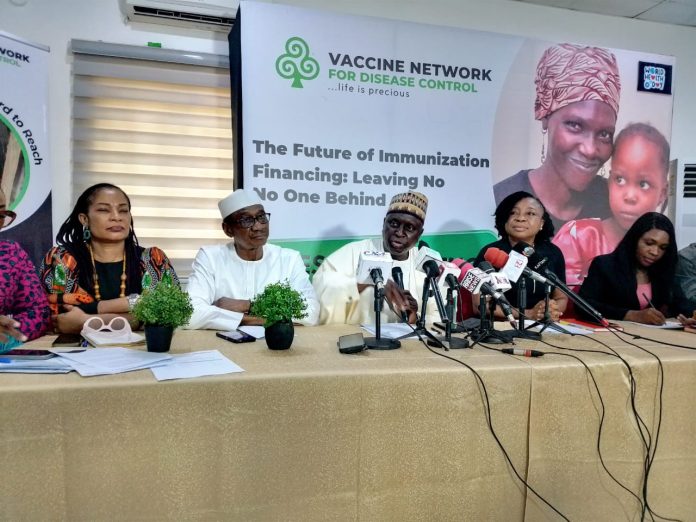…Calls For Vaccine Financing As First-Line Charge In National Budget
Despite recent strides in vaccine funding, Nigeria’s immunization progress remains fragile without a sustainable financing framework, the Vaccine Network for Disease Control has warned. Speaking during a press briefing to mark World Health Day 2025, the Network’s Executive Director, Chika Offor, lauded the Federal Government for releasing long-awaited vaccine funds for 2022 and 2023, alongside 25% of the 2024 allocation. However, she stressed that gains made could be quickly eroded if urgent structural reforms are not put in place.
“We commend President Bola Ahmed Tinubu, the Coordinating Minister of Health and Social Welfare, Professor Muhammad Ali Pate, and the Minister of Finance, Wale Edun, for demonstrating political will by prioritizing immunization,” Offor said. She noted that the ₦231.7 billion allocated for immunization in 2025—including provision for malaria vaccines and vaccine logistics—represents a critical step toward universal health coverage. However, she warned that donor withdrawals and shrinking fiscal space have created a looming threat. “If we do not act quickly, we risk reversing the progress made in 2024. These children are not statistics—they are real lives, with names and dreams,” she cautioned.
Offor urged the Federal Government to make vaccine financing a first-line charge in the national budget to ensure timely and predictable disbursement. She also called on state and local governments to allocate dedicated vaccine budgets and establish accountability systems. While celebrating successes like 71% HPV vaccine coverage and over 30 million children protected from polio, she pointed to persistent gaps, particularly Nigeria’s high number of zero-dose children—those who have never received any routine immunization.
Also speaking, Prof. Emmanuel Alhassan, Nigeria Coordinator for the Prevent Epidemics/Immunization Programme at the Global Health Advocacy Incubator, echoed the concerns. He stressed that while vaccines save lives, inconsistent financing continues to threaten health security. “It’s time Nigeria stopped depending solely on international partners like Gavi and increased domestic investment. As the CEO of the Vaccine Network rightly said, the time to act is now,” he stated.
Both advocates emphasized that immunization is not just a health obligation but a smart economic investment, reducing disease burden and saving future healthcare costs. They affirmed support for the Federal Government’s renewed investment in primary healthcare, noting that a strong PHC system means better vaccine access, fewer zero-dose children, and a healthier Nigeria.

